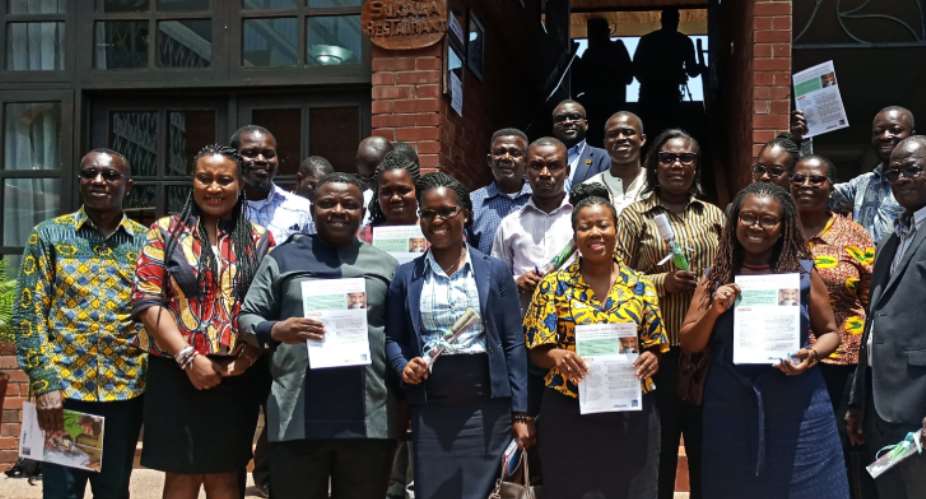Information provided by WaterAid has shown that about 289,000 children under-five die every year from diarrheal diseases caused by dirty water and poor hygiene and sanitation. This represents 800 children per day or one child every two minutes.
These figures, although, gloomy, modeling has found that rotavirus which is used to immunize children against the most common cause of diarrheal diseases combined with hygiene promotion could lead to nearly twice the reduction in child illnesses and nearly five times the reduction in child deaths than rotavirus vaccination alone.
It is however estimated that rotavirus vaccination and nutritional interventions such as breastfeeding promotion and zinc supplements could potentially reduce illness by nearly two thirds (63%) and almost halve the number of child deaths (49%) from diarrheal and pneumonia. The Equivalent of averting more than 697,000 child deaths a year.
Children who even survive multiple bouts of diarrhea are left weakened and sometimes stunted, their long-term development and education compromised, the information added.
This new finding indicates that an integrated approach combining vaccination and hygiene promotion has been successful implemented in Nepal by the Ministry of Health with support from WaterAid.
In their bid to increase efforts towards hygiene promotion vis-à-vis rotavirus vaccination, a global report launched by WaterAid and PATH’s Defeat Diarrheal Diseases (Defeat DD) Initiative focused on coordination, integration and investment to improve delivery and outcomes of child health for mostly the developing countries that are worst hit by poor sanitation.
The report also ignited national conversations on how joint child health and water, sanitation and hygiene (WASH) interventions can deliver for a country’s future.
Sector Challenges
On the local dimension, some of the major challenges there were highlighted by representatives from government institutions and agencies as well as NGOs and Civil Society Organisations (CSOs) during the launch of the WaterAid and PATH’s Defeat DD global report in Accra includes late release of funds by central government to sector Ministry and agencies, poverty, lack of sustainable programmes and lack of coordination between ministries and agencies.
According to them, these challenges coupled with dwindling donor support affects efforts by WASH decision makers towards proper coordination, integration and investment in the sector.
The Head of Policy, Advocacy and Campaigns, WaterAid Ghana, George Cobbinah Yorke indicated that sector ministries and the agencies are unable to implement WASH sector programmes due to delayed release of funds from central government.
He added that there is lack of coordination between sector ministries and agencies such as Ministry of Sanitation and Water Resources, Ministry of Health and Accra Metropolitan Assembly (AMA) to effectively deal with sanitation problem in the country.
Mr Yorke noted that most of the programmes and interventions by government are merely policies driven by the wheels of political promises. Those programmmes most often are abandoned by the next government as a result of political supremacy.
Deepening Institutional Collaborations and Innovation
The report highlighted the importance of institutional collaboration to improve coordination between Ministries of Health and Ministries responsible for Water Sanitation and Hygiene (WASH). It extended similar action between teams within donor agencies and build shared ownership for shared outcomes.
On integration, the WaterAid report called for rapid innovation, assess and scaling up integrated programmes. This includes co-location of child health/nutrition and WASH interventions to areas and communities with multiple vulnerabilities and integration of hygiene promotion within routine vaccination programmes.
According to the report, countries must put in place domestic and international financing that supports and incentivises an integrated approach.
The Head of People and OD, WaterAid Ghana, Antoinette Aba Shor-Anyawoe said Ghana need to have a sustainable plan for the WASH sector that will interface with programmes for long term benefits.
She indicated that Ghana has made progress in terms of water coverage which is about 80percent however, the challenge, is the filth that has engulfed the cities and towns in the country. This has led to outbreak of diseases such as diarrhea, dysentery, cholera, malaria and typhoid caused by pathogens.
Mrs Shor-Anyawoe noted that her outfit has taken steps to improve efforts on education and awareness creation to sensitize the public against improper sanitation practices.
According to her, sanitation and health has a direct linkage which means we cannot live a healthy life without tackling the sanitation situation which is causing a serious mess in the country.
She called on government to release funds to the sector ministry and agencies timely to enable them embark on social intervention programmes effectively.






 'Kill whoever will rig Ejisu by-election' – Independent Candidate supporters inv...
'Kill whoever will rig Ejisu by-election' – Independent Candidate supporters inv...
 Ashanti Region: ‘Apologize to me for claiming I owe electricity bills else... – ...
Ashanti Region: ‘Apologize to me for claiming I owe electricity bills else... – ...
 Ghana is a mess; citizens will stand for their party even if they’re dying — Kof...
Ghana is a mess; citizens will stand for their party even if they’re dying — Kof...
 Internet shutdown an abuse of human rights — CSOs to gov't
Internet shutdown an abuse of human rights — CSOs to gov't
 Free SHS policy: Eating Tom Brown in the morning, afternoon, evening will be a t...
Free SHS policy: Eating Tom Brown in the morning, afternoon, evening will be a t...
 Dumsor: A British energy expert 'lied' Ghanaians, causing us to abandon energy p...
Dumsor: A British energy expert 'lied' Ghanaians, causing us to abandon energy p...
 What a speech! — Imani Africa boss reacts to Prof. Opoku Agyemang’s presentation
What a speech! — Imani Africa boss reacts to Prof. Opoku Agyemang’s presentation
 Dumsor: Tell us the truth — Atik Mohammed to ECG
Dumsor: Tell us the truth — Atik Mohammed to ECG
 Dumsor: Don't rush to demand timetable; the problem may be temporary — Atik Moha...
Dumsor: Don't rush to demand timetable; the problem may be temporary — Atik Moha...
 Space X Starlink’s satellite broadband approved in Ghana — NCA
Space X Starlink’s satellite broadband approved in Ghana — NCA
